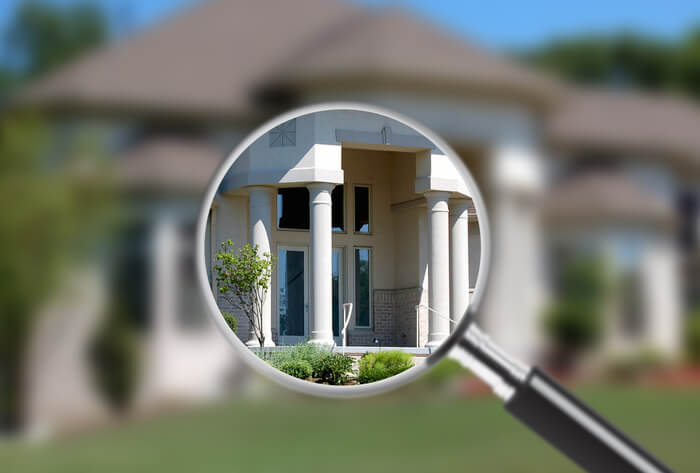How To Calculate Cap Rate For Vacation Rentals (And Why You Should)

Vacation rental property investors need to know a number of different metrics to use when deciding to invest in a property, including how to calculate cap rate.
While investing in property for short-term rentals can be highly profitable, it is always a good idea to do your research before investing your hard-earned money. A cap rate can provide key insights into how profitable or risky an investment might be.
Read on to explore what a cap rate is, how to calculate it, and what it can be used for.
What Is A Cap Rate?
A cap rate, more formally known as capitalization rate, is used to indicate the potential rate of return you can expect from a real estate investment property. It is calculated based on the net operating income the property is expected to generate.

A cap rate comes in handy when you need to make a quick comparison of the property relative to similar real estate investments in the market. However, it is not the only factor to consider when determining if a property is a good investment or not.
A capitalization rate is one of the most popular ways to measure the potential profitability and return on an investment property.
What Is the Cap Rate Formula?
Capitalization Rate = Net Operating Income ÷ Current Market Value
The cap rate is expressed as a percentage after dividing the property’s net operating income by the current market value.
What Does My Cap Rate Mean? [Interpreting & Understanding Your Capitalization Rate]
The main purpose of a cap rate is to compare different property investment opportunities. It indicates how much return an investment property could generate over a one-year time period while assuming the property is purchased with cash and not debt.
A capitalization rate is also an indicator of the amount of time it will take for an investor to recover their investment in a property. For example, if a property’s cap rate is 10% (per year) it will take 10 years to recover the full investment (100%).
As mentioned before, while a cap rate is useful for comparing the risks of property investment, it is not the only metric to take into account. Calculating other metrics like return on investment, researching the local property market thoroughly, and building a sound business plan should all form part of your investment strategy.
What Is A Good Cap Rate For Investment Property?
There is no set good cap rate for a property investment. It all depends on how much risk you are willing to take on as an investor.
The higher the cap rate, the higher the level of risk. And, as you would guess, the lower the cap rate, the lower the risk, but also the potential returns.
However, generally speaking, a good range for your capitalization rate is between 4-10%. Generally, investors usually prefer the higher half of this range.
How To Calculate Cap Rate (Capitalization Rate Calculation Examples)
While a cap rate calculator isn’t difficult to find online the main work lies in calculating the figures you need for the calculator. Let’s take a closer look at the elements of the cap rate formula and how to use them to calculate your own capitalization rates.

1. Calculate your property’s net operating income
You can calculate net operating income (NOI) by totaling up your gross rental income and deducting all operating expenses.
Your operating expenses will be the costs you need to incur to run your business, like:
- Admin costs
- Advertising expenses
- Travel expenses
- Monthly rent (if you use an office space)
- Software subscriptions and internet
- Employee salaries or contract worker fees (e.g. cleaning staff)
- Accounting and legal fees
- Repairs and maintenance
- Bank charges
- Business and property taxes
- Insurance
- Utilities.
Naturally, the higher the net operating income, the better your profitability will be. Therefore, it’s important to maximize your rental income while keeping costs low. The best way to achieve this is by using vacation rental automation software.
With vacation rental software like iGMS, you are able to automate and streamline the daily hosting tasks that take up the most time, allowing you to focus on tasks that will grow your business and boost your income.
iGMS can supercharge your vacation rental management by:
- Automating triggered messaging and organizing your chats into a single feed via a unified inbox to ensure prompt replies
- Managing multiple accounts and listings across the top booking platforms from a single interface
- Synchronizing reservations across multiple platforms to eliminate the risk of getting a double-booking
- Helping you build a stunning professional website for direct bookings with the website builder
- Automating guest review send-outs
- Sharing daily cleaning schedules with your cleaners and auto-assign cleaning tasks
- Creating essential reports on your performance and results within minutes, and analyzing your business performance and growth on an interactive Dashboard.
2. Find out your current property value (purchase price if new)
The next step is to find out the current property asset value for your rental home. You could do this by getting your property professionally evaluated to get the most accurate value. You could also use useful tools like an ARV calculator to help you find your property value.
However, taking your purchase price and any renovations into account, combined with comparing your property to similar ones in the area, will also give you a semi-reliable figure to work with.
If the property is new or for sale, the purchase price will be reliable enough to use. However, if you’ve purchased your property a few years ago, it won’t be the best idea to use it.
3. Use these figures in the cap rate formula
Once you have both your net operating income and the current property value, you have all you need to plug the numbers into the formula:
Net Operating Income ÷ Current Market Value (OR Purchase Price)
-
Cap rate calculation example
Let’s say you are considering buying one of two investment properties for your vacation rental business. You would like to have a better idea of the future profitability of each property to make a more informed decision. Let’s compare their cap rates:
Property A:
Current market value: $500,000
Expected net operating income: $40,000
Cap rate = 40,000 / 500,000 x 100%
= 8%
Property B:
Current market value: $600,000
Expected net operating income: $44,000
Cap rate = 44000 / 600000 x 100%
= 7.3%
Generally, property investors may think that buying a more expensive property will lead to higher profitability. However, when comparing the cap rates, Property A looks to be more profitable.
Capitalization Rate FAQs
1. Who is a capitalization rate important to?
A cap rate is most important to property investors. They, unlike residential homebuyers, will care the most about the potential rental income, net operating income, and returns they can receive from buying a property.
2. When should you use a cap rate and when should you not?
The main reason real estate investors use a cap rate is for weighing up whether or not to buy multiple commercial properties. Although, it can also be useful to consider when buying real estate intended for vacation rentals if you are confident you will be able to make a steady cash flow.
The worst time to take capitalization rates into consideration is when the income stream won’t be steady or easily predictable, like if you are intending to flip a house or only rent it out for a short period of the year. It is also not useful if you are purchasing a family home without expected cash flow.
3. What are the limitations of a capitalization rate?
Although calculating your cap rate is a sound indicator of the profitability you could expect from a property investment, it does have some limitations. The biggest one is that it will be less reliable if you can’t expect a regular, predictable cash flow from the property in question. Because of this, you should only use a cap rate when you can expect a relatively stable income over the long term.
4. Which factors impact a cap rate?
As we have already mentioned, a cap rate should not be the only measure you use when determining whether or not a property is a good investment. Apart from having limitations, there are also multiple factors that could affect the cap rate. Some of these factors are:
-
Location
Whether you’re investing in commercial real estate or vacation rental residential properties, location will play a huge factor in your potential returns. A location can dictate the demand for the property, the market value growth rate, and the foot traffic moving around the property.
-
Status of the local market
When considering your cap rate, you’ll need to think about the local market of your investment property. Specifically, you’ll need to think about the competition the local market brings. If you are investing in vacation rental property, how many other properties in your local area offer the same type of short-term rental accommodation? Will this impact your occupancy?
If you are not able to fill up your booking calendar because of too much competition in the area, even if you expected a higher net operating income beforehand, it will bring your income and capitalization rates down.
-
Future trends
What is trending in the real estate market now may not be in a few years’ time. Something as sudden as a pandemic could shift what travelers look for in a vacation rental from bustling and lively places to spacious and tranquil ones instead. This is why it is also not a good idea to have too high a cap rate and take on too much risk unless you are able to adapt easily to future trends and unexpected changes.
-
Available capital
The general rule of real estate property — whether it be residential or commercial property — is that the more capital you are able to invest in your property through upgrades and renovations, the better your potential return on investment. Having capital available to be able to do so will, therefore, also impact your cap rate.
-
Growth potential
If your real estate market is experiencing growth, this will most likely rub off on your property and cap rate. This is why it is always good to invest in a growing market.

5. Is a cap rate and ROI the same thing?
Not exactly, but they are quite similar. A return on investment (ROI) looks at the potential return your investment can bring you over a specific time period. A capitalization rate provides an expected return for the investment property at the current point in time, given the current market value and net operating income.
6. Is a higher or lower capitalization rate better?
It’s not a clear-cut answer whether a higher or lower capitalization rate is better for everyone. It all depends on how you would like to balance risk vs return. If you are willing to take a higher risk to earn higher returns, a higher cap rate would be more suitable for you.
Similarly, if you prefer to take less risk ad don’t mind waiting longer to realize your returns, a lower cap rate is better for you.
7. Does the capitalization rate include my mortgage?
The capitalization rate excludes debt you have used, like a mortgage. This is so that it can purely look at the potential return on your investment.
Final Thoughts
A cap rate uses net operating income and property value to determine the potential profitability of buying vacation rental or commercial real estate. While it is not foolproof, it can be useful when making investment decisions.
By ensuring you are able to maintain a steady cash flow of rental income, and streamlining your operations with vacation rental software to save time and money, you will be capable of making rewarding property investments.
About the Author
Callan Riddles is the Content and Social Media Specialist at iGMS. Callan has a passion for finding new ways to help vacation rental businesses thrive. In her free time, she loves to travel, read, and experience all the new things that life has to offer.





![Your Monthly iGMS Roundup [February 2020]](/content/images/size/w600/wordpress/2020/02/igms-roundup-feb-2020-cover.png)

